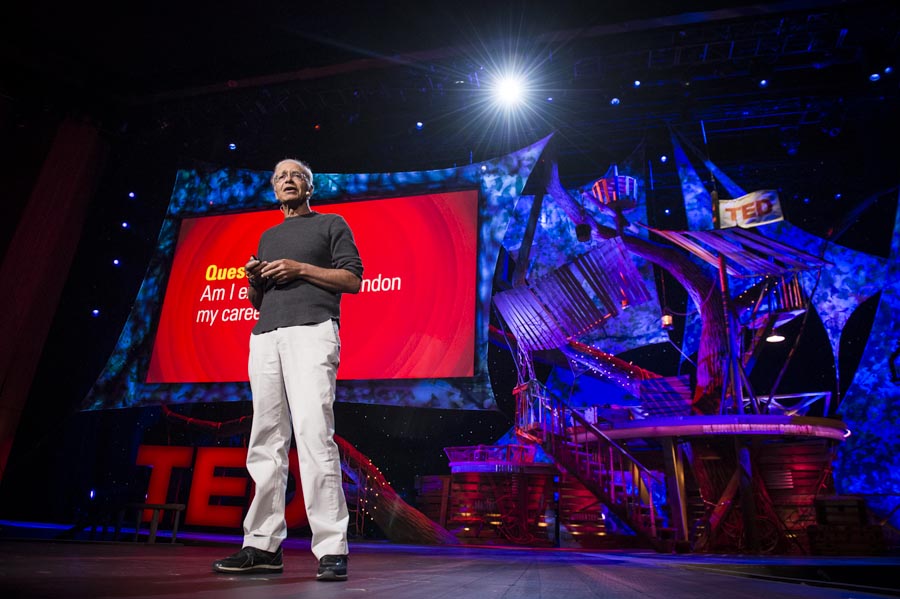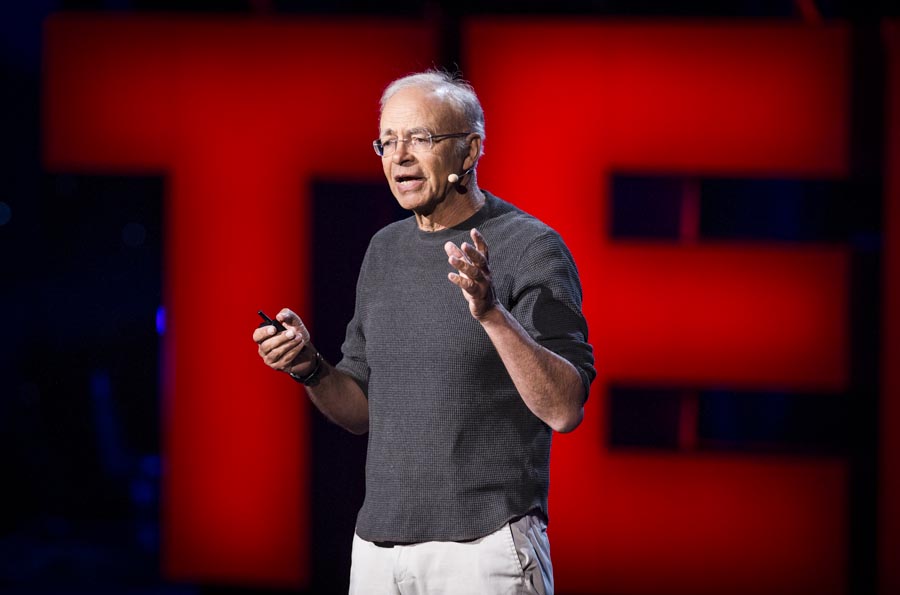Moral philosopher Peter Singer starts the last session of TED2013, “A Ripple Effect?” with a shocking video of a 2-year-old girl in China who was hit by a van — and then a second van — and ignored by passers-by as she lay dying in an alley. He asks of the audience: Would you have stopped and helped this girl? Not surprisingly, the unanimous response was yes. Well, every day that we don’t help others, he says, it’s like leaving this girl crippled in the alley. In 2012, Singer says, UNICEF reported that 6.9 million children under 5 died from preventable poverty-relatable diseases like malaria. Does it really matter that we’re not walking past these children in the street, that they’re far away? According to Singer, there is no morally relevant difference.
There’s a new movement of people who are realizing how necessary it is to help others. It’s called effective altruism. Using empathy and intellect, it appeals to both heart and head. Because reason is not a neutral tool to help you get whatever you want, says Singer, but to get perspective on the situation. Effective altruism has been led by figures in philosophy, math, economics — which may be surprising because people think philosophy has nothing to do with the real world, economics is for the selfish, math is just for nerds. Indeed, the most effective altruists in history — Bill and Melinda Gates and Warren Buffett — are “nerds” who realize that it’s necessary to give to charity and to make sure that charity is effective.
Singer asks and answers questions about effective altruism:
1. How much of a difference can I make?
You don’t have to be a billionaire, says Singer. Meet Tony Ord, a philosophy researcher. He realized that with the money he was going to make over his lifetime, he could cure 80,000 people of blindness in developing countries and still have enough left to live a perfectly adequate life. He started Giving what we can, to ask people to give 10 percent of their income over their lifetime to fight against global poverty.
 2. Am I expected to abandon my career?
2. Am I expected to abandon my career?
Meet Will Crouch, a graduate student in philosophy who began 80,000 Hours (roughly the number of hours you spend in your career), which helps people find careers that make the biggest possible difference in the world. Surprisingly, one career he encourages people to go into is finance and banking, because the more you earn the more you can give. If you earn a big salary, rather than becoming an aid worker yourself, you could pay the salaries of five aid workers in developing countries.
Singer and one of his students started an organization called The life you can save, which aims to encourage people to see that charity is part of living a normal life.
3. Isn’t charity bureaucratic and ineffective anyway?
One of the most important aspects of effective altruism is measuring your impact quantitatively. You can pay to provide and train a guard dog for a blind American, which costs about $40,000. But with that money you could cure 400 to 2,000 people in developing countries of blindness from glaucoma, which costs about $20 per person. Resources like Givewell and Effective Animal Activism help find those organizations that are truly effective.
4. Isn’t it a burden to give up so much?
No, says Singer. Giving helps lift the immense weight of living a Sisyphean life. The consumer lifestyle is: Work hard, make money, spend money on goods, run out of money, start again to maintain happiness. It’s a hedonic treadmill you can never get off. Effective altruism allows you to demonstrably contribute to the lives of others while also adding meaning and fulfillment to your life.
Peter Singer’s talk is now available for viewing. Watch it on TED.com»

Comments (34)
Pingback: Attracting Exceptionally Famous Speakers to Your Events – Riley Harris
Pingback: Эффективный Альтруизм: Питер Сингер на TED2013 | TED RUS
Pingback: The Latest Science on Having a Rewarding Christmas | Technewsnow.Today
Pingback: The Latest Science on Having A Rewarding Christmas | EuroMarket News
Pingback: Compassion for all; a critique of Effective Altruism | Practically Ethics
Pingback: The life you can save | peakmemory
Pingback: Change-Magazine | Divestment: A Project in Ineffective Altruism - Change-Magazine
Pingback: Altruism < Effective Altruism | Inside the Minds of Teenagers